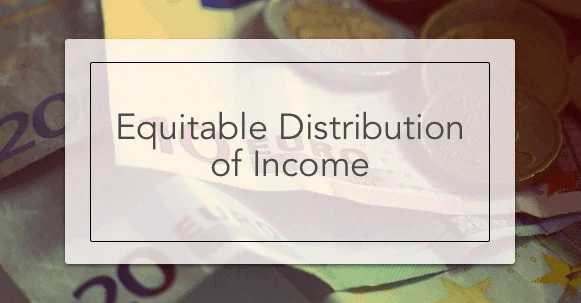A more equitable distribution of income may help accelerate growth and promote economic development. Equitable doesn’t mean equal distribution of income. It refers to the distribution of income that is ‘fair,’ but the concept of ‘fair’ is subjective.
Distribution of wealth and income is the way in which the wealth and income of a nation are divided among its population. Or the way in which the wealth and income of the world are divided among nations.
An equitable distribution of wealth gives all citizens a fair opportunity to become successful.
“Income disparities have become so pronounced that America’s top 10 percent now average more than nine times as much income as the bottom 90 percent. Americans in the top 1 percent tower stunningly higher. They average over 39 times more income than the bottom 90 percent. But that gap pales in comparison to the divide between the nation’s top 0.1 percent and everyone else. Americans at this lofty level are taking in over 188 times the income of the bottom 90 percent.” – Inequality.org
Why Do We Need Equitable Distribution of Income?
The propensity to consume is the proportion of your income spent on purchases. For example, if you earned $2000 and spend $1800 on all your purchases then your propensity to consume is at 90%. However, if you earned $18000 and still only spent $1800 then your propensity to consume is at 10%. The poorer have a higher propensity to consume so the redistribution of income will increase consumption and thus aggregate demand. This will spur economic growth.
Governments have an easier job of implementing economic policies if people are happier. If people think that their hard work isn’t rewarding then there can be social unrest, which increases uncertainty.
If wealth is very unfairly distributed, then the majority of people will suffer at the expense of the very few rich individuals. The poor will be able to access healthcare and education, which will improve the quality and quantity of factors of production in the long run.
However, an equitable distribution of income could lower incentives for people to work more and for business owners and businesses to take on risks.
Solutions to an Equitable Distribution of Income
A good short-run solution would be a progressive tax system with transfer payments, such as subsidies, unemployment benefits and disability benefits. By taxing higher income groups more than lower-income groups, the income can be redistributed from the rich to the poor.
However, a good long run policy would be to improve the access to education and healthcare, create more jobs and lower corruption. This will ensure that almost all of the citizens have the opportunity to advance and accumulate wealth regardless of their beginnings.


How can we find equitable distribution of centrally planned economy ?
I want a proper answer of this particular question…. !
To begin the Inquiry with the distribution of wealth seems to be assuming resolved a critical variable. The distribution of wealth is based on the medium of exchange. What is the best way to determine Success